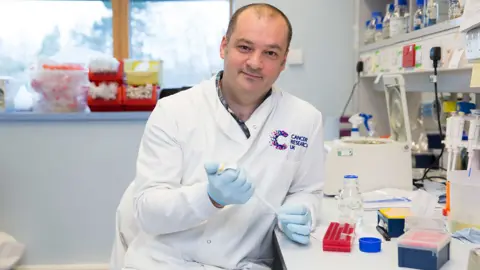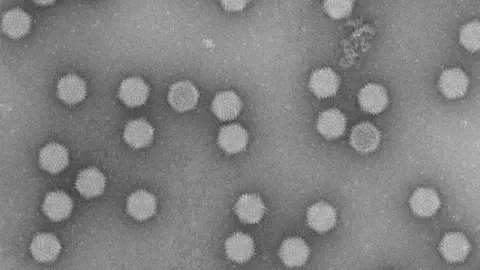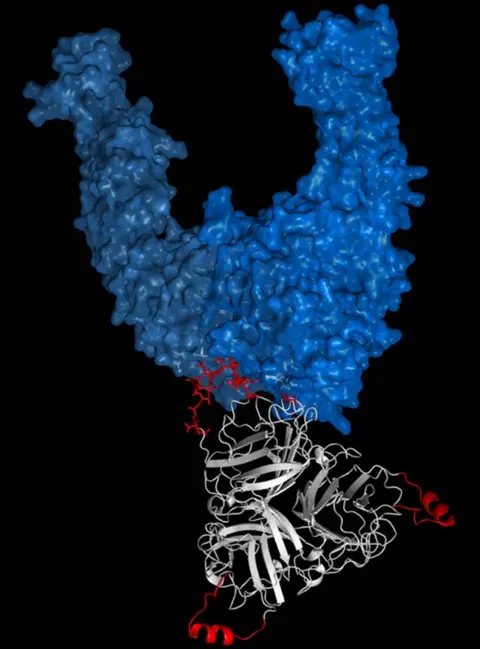Virus trained to destroy ovarian cancer by Cardiff University
 Cardiff University
Cardiff UniversityScientists have "trained" a virus to recognise ovarian cancer cells - and destroy them.
Reprogrammed viruses are already used in gene therapy to treat diseases.
But the research team led by Cardiff University says this one can do its work without affecting healthy cells.
They hope treatment could be a future possibility and also be used to treat other cancers such as breast, pancreatic, lung and oral.
Dr Alan Parker from Cardiff University's school of medicine said: "In cancer treatment, up until now reprogrammed viruses have not been able to selectively recognise only the cancer cells and would also infect healthy cells, resulting in unwanted side effects.
"We've taken a common, well-studied virus and completely redesigned it so that it can no longer attach to non-cancerous cells."
Instead, the respiratory virus seeks out a specific marker protein called αvβ6 integrin, which is unique to certain cancer cells, allowing it to invade them, said Dr Parker.
 Cardiff University
Cardiff UniversityWhen introduced to ovarian cancer, the reprogrammed virus successfully identified and destroyed them, after replicating and copying itself thousands of times before "bursting" the cells.
The newly-released viral copies then blind and infect the neighbouring cancer cells and then keep repeating the cycle until the tumour is removed.
Dr Parker called it an "exciting advance", offering real potential for patients with a variety of cancers.
 Cardiff University
Cardiff UniversityThe reprogrammed virus is from a group of viruses called adenoviruses.
The researchers say the advantage of using these types is that they are relatively easy to manipulate and have already been safely used in cancer treatment.
The research was carried out in a laboratory, using mice with ovarian cancer.
The next stage is to test the technique with other cancers with a view to starting clinical trials in five years' time.
Dr Catherine Pickworth from Cancer Research UK, one of the funders of the research along with Tenovus Cancer Care and Cancer Research Wales, said: "Viruses are nature's nanotechnology and harnessing their ability to hijack cells is an area of growing interest in cancer research."
The research team also includes scientists from the Mayo Clinic in Rochester, USA, Glasgow University, the South West Wales Cancer Institute and Velindre Cancer Centre in Cardiff.
The study paper is being published in Clinical Cancer Research.
